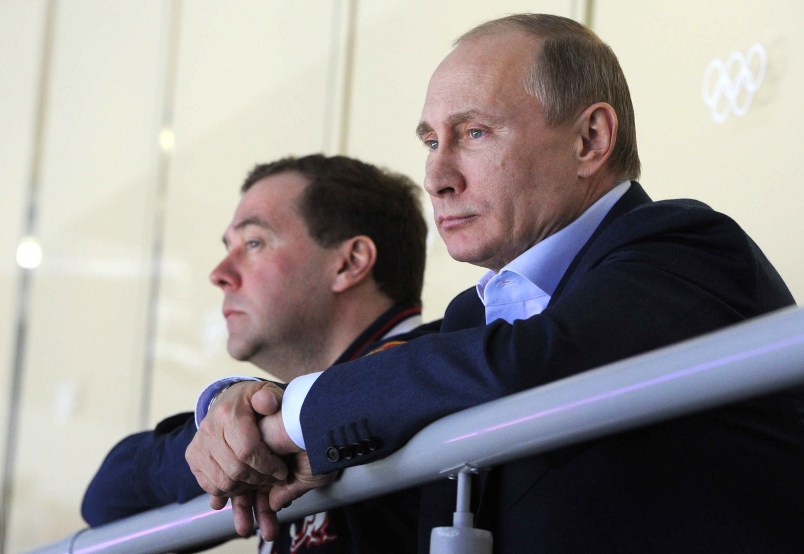MOSCOW (AP) — Russia’s economy slowed sharply in the first three months of the year as uncertainty over the crisis in Ukraine spooked investors into pulling money out of the country, a government minister said Wednesday.
Economy Minister Alexei Ulyukayev told parliament that growth was only 0.8 percent in the first quarter — far short of the ministry’s earlier prediction of 2.5 percent — because of “the acute international situation of the past two months,” as well as “serious capital flight.”
Russian markets have been rattled by tensions between Moscow and neighboring Ukraine, where Russia annexed the Black Sea region of Crimea last month. The main stock index in Moscow tanked 10 percent in March, wiping out billions in market capitalization. In the first three months of 2014, the ruble lost 9 percent against the dollar, making imports more expensive, and spooked investors pulled about $70 billion out of the country — more than in all of 2013.
Among investors’ chief concerns are that the U.S. and European Union might escalate their sanctions against Russia to affect trade, particularly in the valuable energy market. Europe is Russia’s largest trading partner. It buys more than three-quarters of Russia’s crude oil and natural gas exports, which fund about half the government budget.
So far, the U.S. and the European Union sanctions have been limited to individual Russian politicians and businessmen close to the Kremlin. But the possibility of tougher sanctions has been enough to hinder investment, which dropped 4.8 percent in the first quarter, according to Ulyukayev.
The Ukrainian crisis is coming at a bad time for the Russian economy, which faces fundamental problems, the World Bank said in March. The growth rate in 2013 was the lowest in 13 years after a slump 2009 caused by the global financial crisis.
The World Bank predicted the economy could shrink by a dramatic 1.8 percent this year if instability over Ukraine continues and Russia is hit with more Western sanctions.
Tensions have only increased in April, as NATO accused Russia of amassing troops on its border for a possible invasion of Ukraine and the authorities in Kiev say Russia is backing armed militants in the country’s east, where pro-Russian activists have seized government buildings and police stations.
Copyright 2014 The Associated Press. All rights reserved. This material may not be published, broadcast, rewritten or redistributed.







This is encouraging.
Maybe it will help a sense of reality begin to take root to modify Putin’s sense of invulnerability and resultant resistance to considering alternatives to his present course of action.
One thus far absent possible response is for Putin to consider measures that would serve to calm tensions.
In short he could begin to accept responsibility for his part in creating a crisis atmosphere, and instead of stonewalling, encourage his supporters to choose moderation rather than provocation.